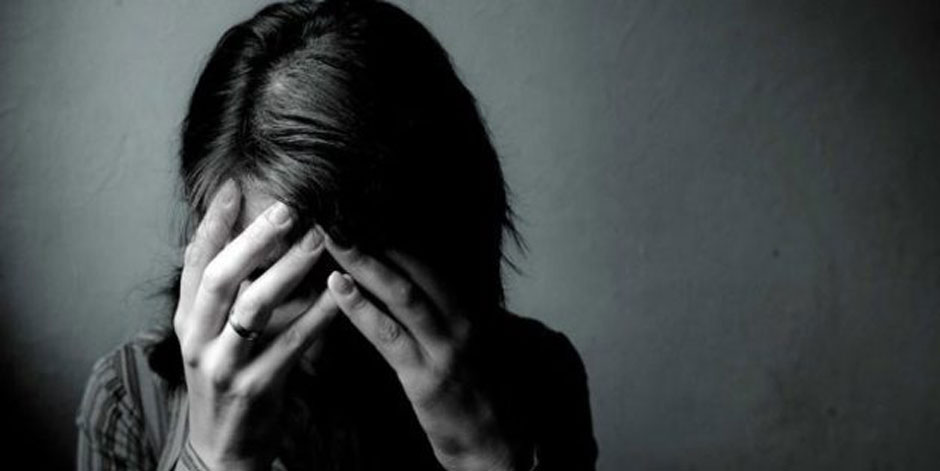Identifying emotional abuse and its implications on mental health
The Express Tribune divulges the details of the ordeal that despite being so prevalent isn't recognised

Experts divulge the details of the ordeal that despite being so prevalent isn't recognised the way it should be. PHOTO COURTESY: https://feminisminindia.com/2018/08/06/emotional-abuse-psychological/
Likewise, what is greatly disregarded in the social fabric is the fact that emotional exploitation imposes drastic, everlasting effects on an individual's well-being, sometimes bigger than physical assault. Even in the increasing debates on mental health and emphasis on removing the stigma around it, not much has been discussed on the causes that lead to these mental challenges and emotional torment is certainly one of them.
Speaking to The Express Tribune, mental health therapist and life coach Ali Lakhani divulged the details of this ordeal that despite being so prevalent, it still isn't recognised the way it should be.
"Emotional abuse is always committed by someone who we are emotionally invested with. I refer to it as hijacking an individual in the name of love," he said. "In my professional experience I have diagnosed the symptoms of emotional abuse in many people battling drug and alcohol addiction, toxic relationship issues, eating disorders and other behaviours, and the core of the problem is always some kind of trauma.”
"The relation between abuse and trauma is that trauma always stems from abuse that a person faces either in early years, by his primary caregivers or from different relationships as an adult," elaborated Lakhani.
Stigma and Sense: Behaviour or disorder?
Abuse and trauma have various implications for mental health. People who have been abused either physically, emotionally, sexually or even verbally are more likely to develop mental health conditions such as depression, anxiety disorders and post-traumatic stress disorder (PTSD). Similarly, self-esteem issues, insomnia, guilt, substance abuse are also the long-term effects and outcomes of emotional abuse.
"Contrary to the commonly-held belief, emotional abuse isn't just confined to childhood," Lakhani continued. "Where children should be protected and most importantly heard, it is also vital to detect the symptoms of emotional abuse in them along with adults to let the healing process begin."

Some of the basic symptoms of emotional abuse are lack of confidence in an individual, lack of assurance, struggle in controlling emotions and maintaining relationships, isolation and sometimes irrational and unpredictable approach to things.
Elaborating on the topic, psychologist and expert in cognitive behavioural therapy Tipu Pervaiz underscored that emotional abuse is any kind of mistreatment towards an individual that involves humiliation, intimidation, controlling and even neglect. The misery can be experienced within families, in school and at work places.
"Constantly criticising a person, threatening or yelling and calling them names can be extremely detrimental in the long run. I would particularly emphasise on workplaces since they are an ideal nesting ground for emotional abuse and in our culture personal attacks in hostile interactions are a reality," he said. "If there's a disliking developed against you, you are made to feel worthless and incompetent in front of others. An unwelcome, passive hostility is equal to manipulation hence emotional molestation."
He added, "All these acts are so subtle that people do not realise that these instances happen around us all the time and affect us adversely."
Talking about the impact of emotional abuse, Pervaiz highlighted that it could affect an individual both personally and professionally.
"Feeling targeted in any way has a domino effect. Professional turmoil can bring stress home, affecting relations in the social circle as well. Paranoia, second guessing your abilities and questioning self-worth are some of the common symptoms observed in the victims of emotional abuse."
Pointing out the lack of empathy and general insensitivity prevailing towards emotions, Pervaiz urged people to become more cognisant of each other's feelings without any judgement or scrutiny.
"As a society we have learned to produce doctors and engineers but let's not forget to produce good human beings first," he said. "I cannot stress enough that it is high time we start working on development of emotions in our masses on an individual level and even more so when there are children in question. People and parents in particular should understand the importance of nurturing positive emotions for a productive, healthy, confident, emotionally independent and psychologically stable society.”


















COMMENTS
Comments are moderated and generally will be posted if they are on-topic and not abusive.
For more information, please see our Comments FAQ